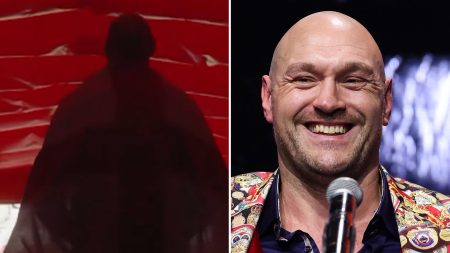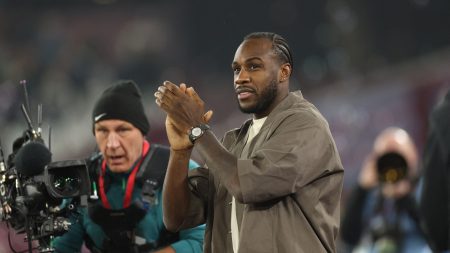Dean Windass, the 55-year-old former Premier League footballer best known for his time at Hull City, has been diagnosed with Stage 2 dementia. The news was revealed on BBC Breakfast by former Manchester United player David May, with Windass’s full permission. May, who is the same age as Windass, expressed his concern for his friend and the anxieties Windass shared about his future. Windass subsequently confirmed the diagnosis on social media platform X (formerly Twitter), posting an upbeat message emphasizing his commitment to staying positive and helping others. He accompanied the message with a video of himself lightheartedly miming along to Glen Campbell’s “Rhinestone Cowboy,” demonstrating resilience in the face of his diagnosis.
The revelation of Windass’s condition has sparked renewed discussion about the link between football and dementia. May, in his BBC interview, highlighted the thousands of headers he took throughout his career, a practice now recognized as a significant contributor to neurological damage. He expressed his own worries about developing dementia later in life and called for greater support from football’s governing bodies – the Professional Footballers’ Association (PFA) and others – for players facing this debilitating illness. He emphasized the financial burden of care and questioned whether adequate resources are available to support current and future generations of footballers struggling with dementia. The statistical evidence supporting the increased risk for footballers is alarming, with studies showing they are 3.46 times more likely to develop dementia than the general population.
David May’s appearance on BBC Breakfast alongside John Stiles, son of the late Nobby Stiles who also suffered from dementia, underscored the growing concern within the football community. Nobby Stiles, a member of England’s 1966 World Cup-winning team, experienced a long battle with dementia before his passing in 2020. This case, among others, has spurred calls for more research and support for affected players and their families. May reiterated his support for Windass both on the program and in subsequent social media posts, emphasizing that Windass had given him explicit consent to share the news publicly. He also mentioned that Windass would soon be sharing his story in greater detail in a national newspaper article.
Windass’s football career, spanning over two decades, saw him play for nine different clubs, most notably Hull City, where he had three separate spells. He also played for Bradford City twice, Middlesbrough, and enjoyed loan spells at Sheffield Wednesday, Sheffield United, and Oldham Athletic. His prolific goal-scoring record, particularly at Hull and Bradford, cemented his status as a fan favourite. He initially retired in 2009 but made two brief comebacks, demonstrating his enduring passion for the game. His diagnosis brings a poignant end to a long and successful career, highlighting the hidden risks that professional footballers face.
The public disclosure of Windass’s diagnosis has brought further attention to the Football Families for Justice (FFJ) campaign, a voluntary organization advocating for greater support for former players and their families affected by dementia. The campaign calls on the government to amend the Football Governance Bill to include a mandatory financial support scheme, funded by football authorities and the PFA. This scheme aims to provide essential resources for the long-term care and support required by those battling dementia. The campaign has garnered support from prominent figures, including former England captain David Beckham, who has joined forces with other ex-players like May, Gary Pallister, Peter Reid, Gary McAllister, and Jan Molby, as well as politicians and medical experts, to push for change.
The increasing prevalence of dementia diagnoses among former footballers has created a sense of urgency for action. The FFJ campaign argues that the football authorities have a moral obligation to support those who have dedicated their lives to the sport and are now facing the devastating consequences of repeated head trauma. The campaign emphasizes that the financial burden of care should not fall solely on the families of affected players. They believe that the wealth generated by the football industry should be used to provide adequate care and support for those who have contributed so much to the game’s success. The campaign continues to push for greater awareness, research, and financial support, hoping to create a more secure future for former players and their families.










